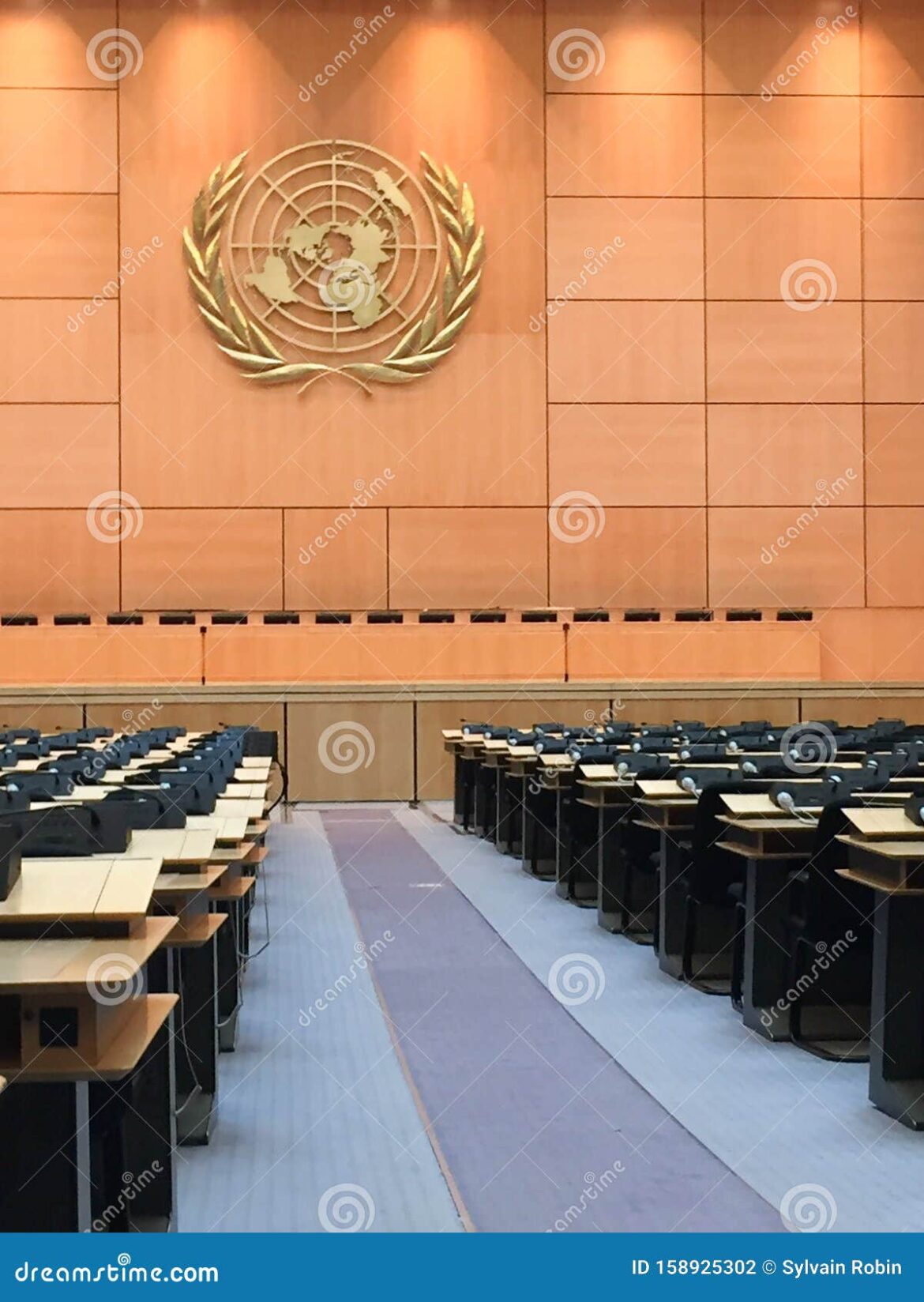Nestled along the serene banks of Lake Geneva, the Palais des Nations stands as an edifice of diplomacy, representing the multifaceted aspirations of humanity for peace, development, and understanding. Serving as the European headquarters of the United Nations, this historical site resonates deeply with Christian ethical and moral ideals. From its inception, the Palais has been a crucible for international dialogue, embodying the vision of a world where collaboration triumphs over conflict. Through this lens, we explore how this institution intersects with Christian principles, promoting global fraternity and stewardship of God’s creation.
The architectural grandeur of the Palais des Nations tells its own story. Constructed in the 1930s, the building is adorned with extensive gardens, opulent chambers, and notable artworks that echo the universal quest for harmony. The Assembly Hall, the heart of the United Nations’ deliberative activities, embodies a spaciousness that invites communal dialogue, much like the places of worship that serve as sanctuaries for congregants. The sheer magnitude of its design mirrors the biblical call to gather—“where two or three gather in my name, there am I with them” (Matthew 18:20). As international representatives convene here, they partake in a ritual similar to communal prayers, seeking divine guidance in their deliberations and decisions.
Christianity, at its core, emphasizes values of compassion, justice, and peace—tenets that resonate profoundly within the United Nations’ charter. These ideals are palpable in the operational ethos of the Palais des Nations, where numerous resolutions have emerged to address pressing global challenges, from poverty and hunger to human rights and environmental concerns. In this context, Christians assess the work done within these walls as a tangible manifestation of the scriptural mandate to care for “the least of these” (Matthew 25:40). The intersection of faith and diplomacy here prompts a crucial question: How do Christians view their role in these international dialogues?
To understand this nexus, one must delve deeper into the Christian engagement with the United Nations. Various Christian organizations and faith-based coalitions actively participate in UN discussions, advocating for policies that reflect biblical teachings. These groups emphasize the importance of stewardship over creation, social equity, and the sanctity of human life. For instance, they galvanize support for initiatives aimed at combating climate change, safeguarding biodiversity, and promoting sustainable development. This commitment aligns with the instruction found in Genesis to “fill the earth and subdue it,” underscoring humanity’s responsibility towards the environment as a sacred trust bestowed by God.
Moreover, the Palais des Nations serves as a microcosm of the global village, where diverse cultures and faith traditions converge. The Christian perspective on this pluralistic environment aligns well with the concept of loving one’s neighbor, irrespective of their background or beliefs. As representatives gather to dialogue, there exists the potential for fostering a spirit of mutual respect and understanding. In the Book of James, it is stated, “Everyone should be quick to listen, slow to speak and slow to become angry” (James 1:19). This theological wisdom not only informs interpersonal relationships but also enhances the diplomatic discourse that occurs within the chambers of the Palais.
The role of prayer in the United Nations’ activities cannot be overlooked. Many delegates and representatives pause to seek divine inspiration before embarking on critical negotiations or issuing statements on vital issues. This practice reconnects the political realm with the spiritual, illustrating the belief that wisdom and discernment surpass human understanding. The scriptural invitation to pray for leaders and nations (1 Timothy 2:1-2) reinforces the idea that the Palais is not merely a physical structure but a site steeped in spiritual significance, where faith and action intersect.
As visitors walk through the halls of the Palais des Nations, they encounter exhibits that not only display the history of the UN but also articulate its mission for a peaceful coexistence among nations. These exhibits often include the promotion of children’s rights, gender equality, and humanitarian assistance—initiatives that reflect the inherent dignity bestowed upon all individuals by their Creator. The Christian doctrine of Imago Dei, the belief that humans are made in the image of God, is echoed in the UN’s commitment to uphold the dignity and worth of every person. In this way, the Palais becomes a pilgrimage site for those who believe in the necessity of advocacy and activism that honors the divine within each individual.
In recent years, the challenges confronting humanity—such as pandemics, conflicts, and climate crises—have plagued global societies. The Palais des Nations has been central to crafting collaborative responses to these existential threats. Christians are called to reflect on how their faith informs their understanding of global stewardship during such crises. The communal aspect of faith develops a sense of solidarity that transcends individual concerns and extends to global challenges, reinforcing the belief that “we are all in this together.”
Looking forward, the Palais des Nations will continue to stand as a testament to the enduring hope for peace rooted in Christian ethics and social justice. The imperative for Christians is clear: to actively participate in the dialogue for peace, to stand up for justice, and to embody love in action. As initiatives spearheaded by the United Nations unfold, believers are invited to remain vigilant, interceding in prayer while also advocating for transformative policies that reflect the teachings of Christ.
In conclusion, the Palais des Nations represents more than just a building; it symbolizes a collective human endeavor towards peace, rooted in values that echo biblical teachings. The interplay between faith and diplomacy generates profound opportunities for Christians to engage meaningfully, advocating for a world that mirrors the Kingdom of God. As discussions continue to unfold in this hallowed space, may they be guided by the principles of love, mercy, and justice that resonate at the very core of Christian belief.



